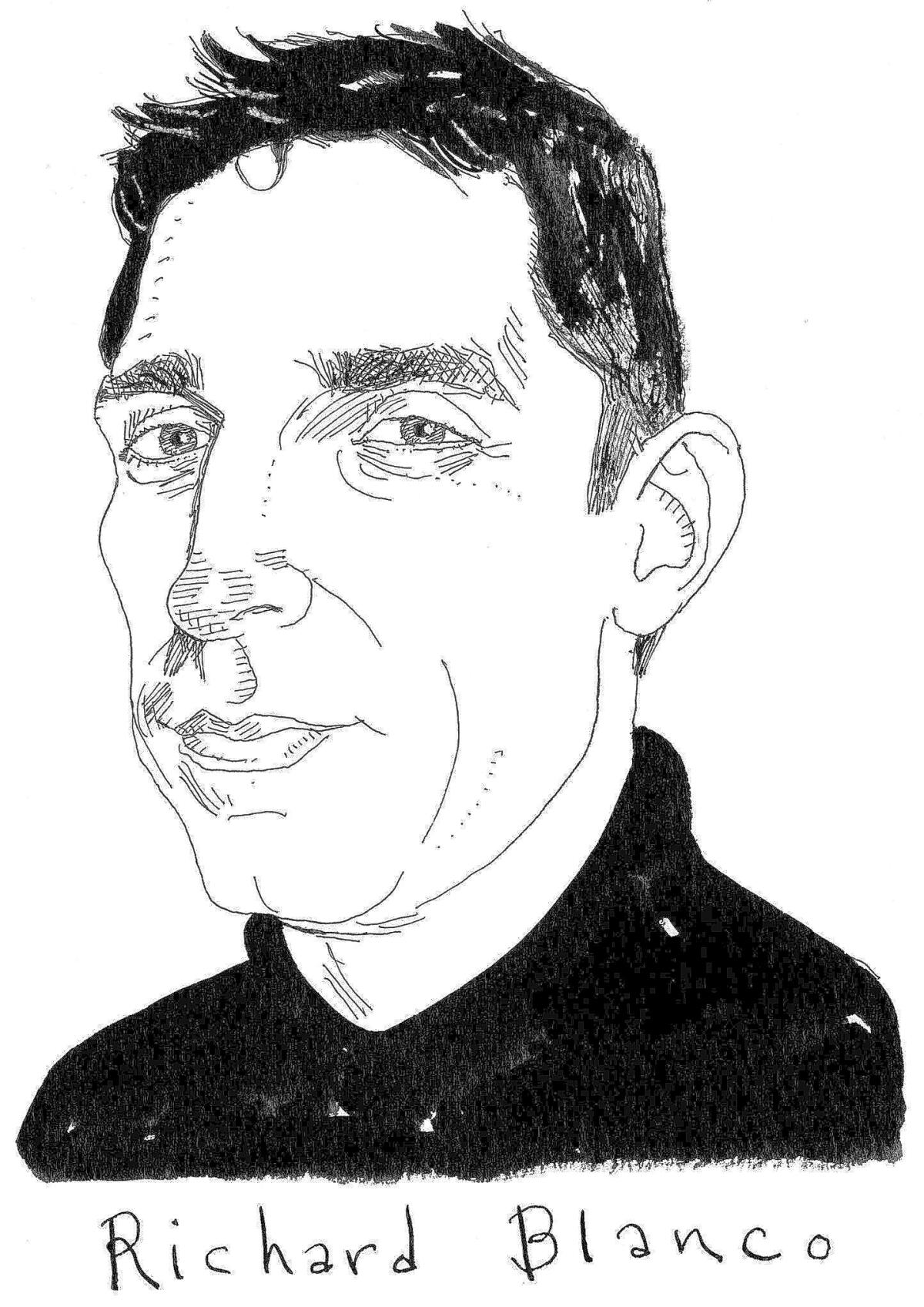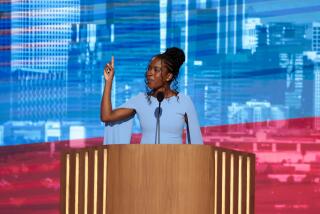Inaugural poet Richard Blanco recalls how he fell in love with words

What does it take to be a writer: A room of oneâs own? A weakness for words? To celebrate the Festival of Books, we asked some celebrated authors to recall a turning point in their evolution as writers.
How did I decide to become a poet? Well, thatâs like asking how I decided to fall in love with Mark, my partner of 14 years. I donât think anyone really makes conscious decisions when it comes to matters of love or vocation. Still, I understand the spirit of such a question, which is really asking: How did I meet and fall in love with poetry? Like every love story, it all feels fated yet completely up to chance; the details seem haphazard yet perfectly orchestrated.
Iâm not one of those poets who claims to have been writing since I was in the womb. My parents werenât professors or patrons of the arts. I didnât grow up surrounded by bookshelves or paintings. The arts were certainly not dinner conversation. We were a relatively poor working-class family simply trying to survive. Whatâs more, there was a cultural divide: My parents didnât even know who the Rolling Stones or Mary Tyler Moore were, for example, much less Walt Whitman or Robert Frost. A life in the arts was just outside the realm of possibility.
Nevertheless, I was possessed by a creative spirit and curiosity since I was a child, taking great pride in my Mickey Mouse coloring books, my Lego houses and my Play-Doh sculptures. But I was also a whiz at math and the sciences. Truly a left-brained, right-brained person, I would score exactly the same on the analytical and verbal sections of every standardized test Iâd ever take. And so, like many immigrants, my parents strongly encouraged me to pursue a more traditional, sound career to ensure Iâd have a better life than they had had.
FULL COVERAGE: Festival of Books
Trusting their advice, I âchoseâ civil engineering, believing that someday, somehow Iâd explore my other creative half, though I never thought poetry would be the one to complete me.
After graduating and establishing my civil engineering career â making my family and myself proud â I felt accomplished and confident enough to begin exploring those creative impulses that had lain dormant. I entertained thoughts of becoming a painter or getting a masterâs degree in architecture, but nothing felt quite right. Then my chance (or fated) meeting with language happened in a most unexpected way. At my engineering office, I began writing inch-thick reports, proposals and lengthy letters; consequently, I became infatuated with language, seduced by its power to organize my thoughts, argue a point or create a persona.
Eventually I couldnât resist the temptation to pick up a pen and explore writing for my own personal expression, merely as a creative outlet at first. I began âdatingâ poetry, so to speak. My earliest poems werenât very good, but they werenât terrible either, according to the friends and former writing instructors with whom I shared my work. Encouraged, the more I wrote and read poems, the more my fascination with and love for language and poetry grew. We started going steady.
One night, after my first reading of âThe Red Wheelbarrowâ by William Carlos Williams, I looked up from the page and began studying my mother preparing dinner in the kitchen: the violence of her hands chopping onions and bell peppers, the dull glint of that same old knife sheâd used since I was a child, the faded tomato-sauce stains on her apron, and the smell of olive oil sizzling through the house.
Suddenly, the ordinary was transformed into the extraordinary, into poetry, into a poem where my mother was not just my mother, and a wheelbarrow was not just a wheelbarrow. Time stopped. I knew poetry was more than a curiosity or a casual interest â it was love, a vocation.
I went on to earn an MFA in creative writing and publish three books of poetry. Thousands of days and poems later, Iâm still amazed by the mystery of my love for words that have remained faithfully by my side.
Blanco served as the inaugural poet for President Obamaâs reelection and is the author, most recently, of âFor All of Us, One Today: An Inaugural Poetâs Journey.â
Festival of Books
What: Richard Blanco in conversation with Leigh Haber
Where: Seeley G. Mudd, USC
When: 3 p.m. April 12
More info: latimes.com/festivalofbooks
More to Read
Sign up for our Book Club newsletter
Get the latest news, events and more from the Los Angeles Times Book Club, and help us get L.A. reading and talking.
You may occasionally receive promotional content from the Los Angeles Times.








